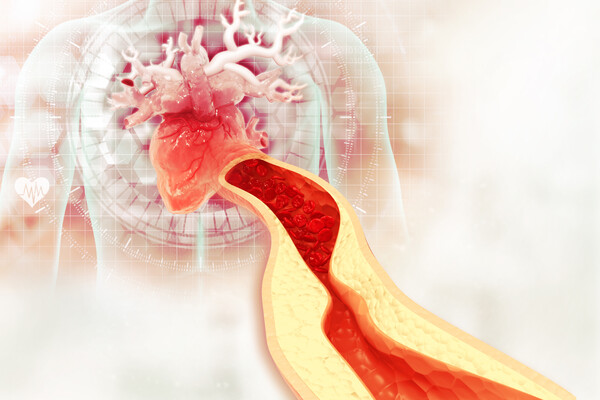
If people are only bent on lowering their cholesterol levels due to concerns about cardiovascular diseases, they could end up increasing the risks of a heart attack or stroke, according to a new study.
Experts stressed that it's important to look at various metrics, including inflammatory activity in the blood.
A joint research team announced the result last Friday after analyzing LDL cholesterol levels and the risk of cardiovascular disease in 2.43 million adults. Professor Yang Han-mo and clinical lecturer Park Chan-soon of the Department of Circulatory Medicine at Seoul National University Hospital and Professor Han Kyung-do of the Department of Mathematical Science for Information, Statistics, and Insurance at Soongsil University led the team.
Traditionally, the prevention of atherosclerotic cardiovascular disease has centered on controlling LDL cholesterol levels. People at high risk of cardiovascular disease manage their LDL cholesterol levels with antihyperlipidemic medications.
The researchers followed 2.43 million adults aged 30 to 75 who underwent a national health examination in 2009 for nine years to determine if lowering LDL cholesterol levels led to cardiovascular disease prevention, even without a history of the disease. Their target was the "primary prevention group" with no history of atherosclerotic cardiovascular disease and was not taking medication for hyperlipidemia.
When the researchers analyzed the relationship between LDL cholesterol levels and the risk of myocardial infarction and stroke, they found a "J-shaped correlation" in the group with LDL cholesterol levels between 80 and 90 mg/dL, where the lower the level, the greater the risk of cardiovascular events.
The paradoxical phenomenon was thought to be related to inflammatory activity. The researchers conducted an additional study in the Seoul National University Hospital Gangnam Center’s cohort group of 2,812 people and the National Health and Nutrition Examination Survey cohort of 17,056 people. Also, they observed a J-shaped correlation between LDL cholesterol levels and hs-CRP (high-sensitivity C-reactive protein) levels. The hs-CRP level is an indicator of inflammation.
In both cohorts, the group with LDL cholesterol of lower than 70 mg/dL" had a higher average of hs-CRP levels with an also higher share than the group with the level between 70 mg/dL and 130 mg/dL.”
The researchers presumed that increased inflammatory activity might have contributed to the increased risk of cardiovascular disease in the group with lower LDL cholesterol levels, as increased inflammatory activity is associated with a higher risk of cardiovascular disease.
"Unlike previous studies, we could clearly distinguish between subjects with and without a history of cardiovascular disease and confirm the J-shaped correlation by conducting long-term follow-up of a large number of people," Professor Yang said. "People with low LDL cholesterol but high inflammatory activity should pay attention to preventing cardiovascular disease.
On the other hand, for people who are already taking statin antihyperlipidemic drugs or are at high risk for cardiovascular events in the next 10 years, controlling their LDL cholesterol levels as they have in the past effectively prevents disease.
The study was published in the latest issue of the Journal of Advanced Research, an international journal of multidisciplinary research.

